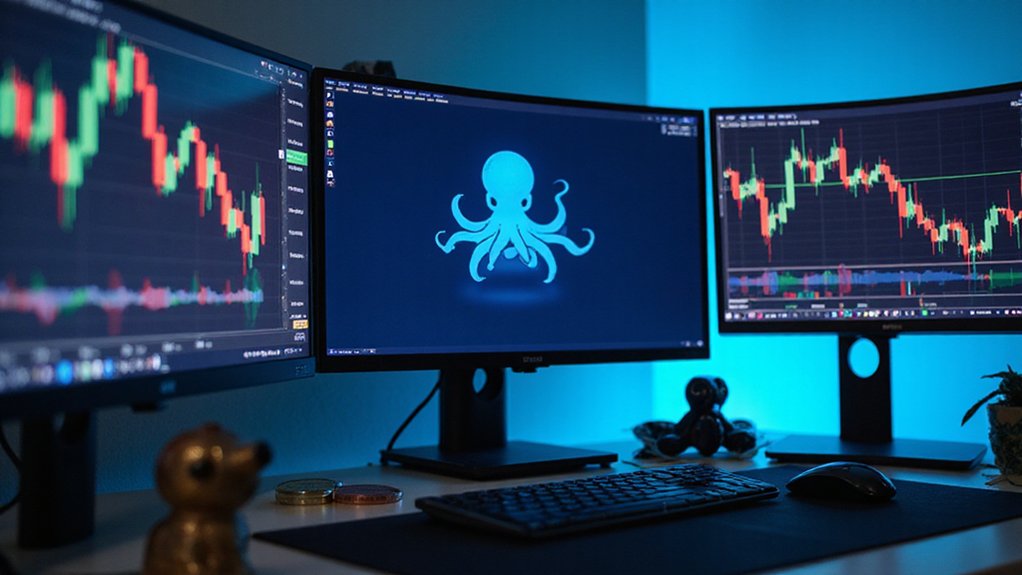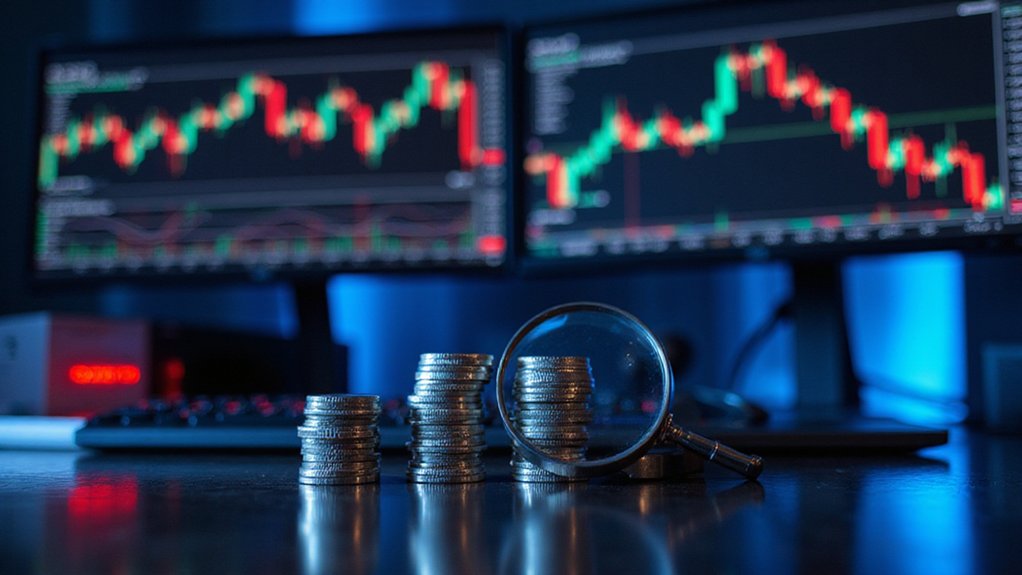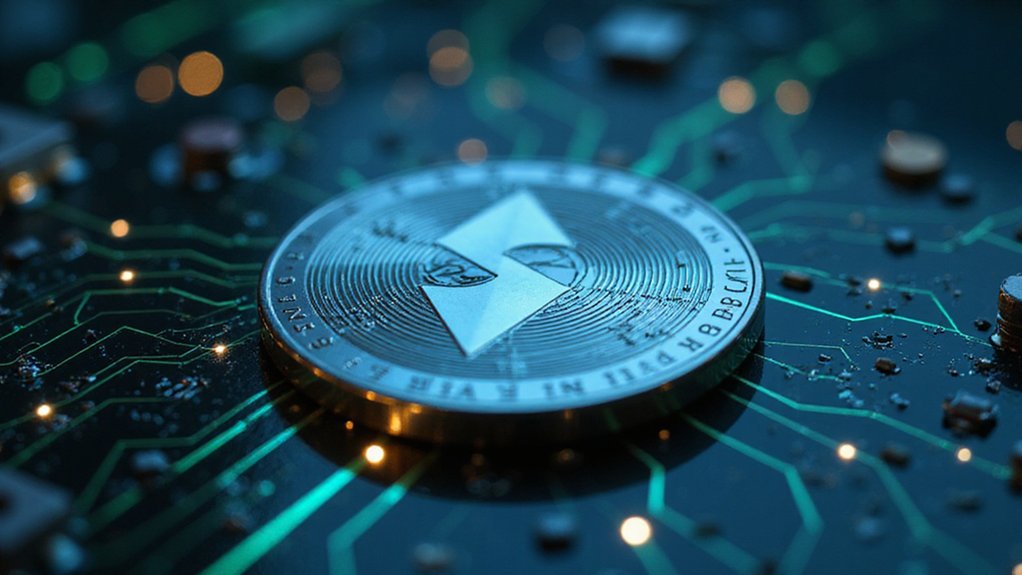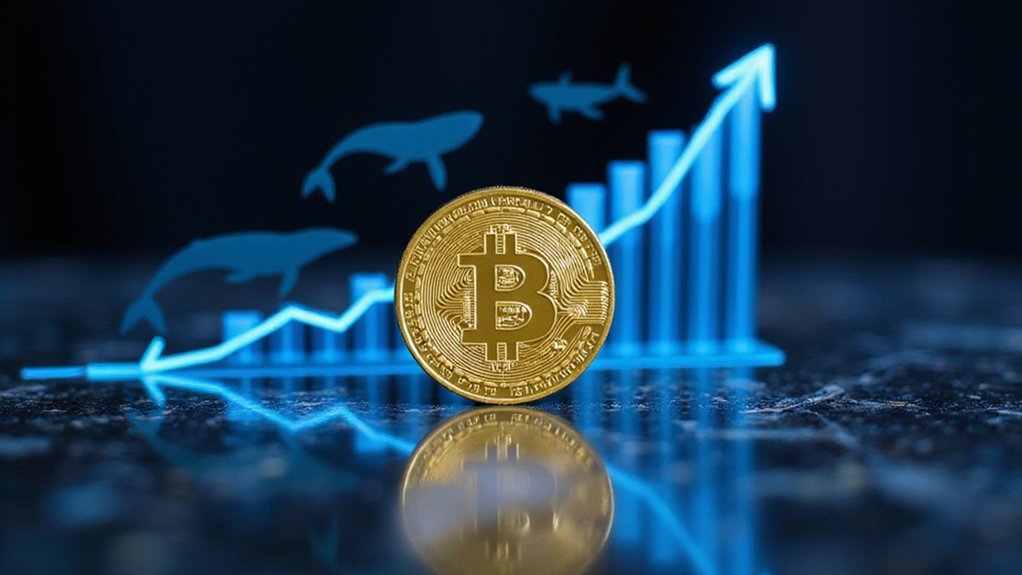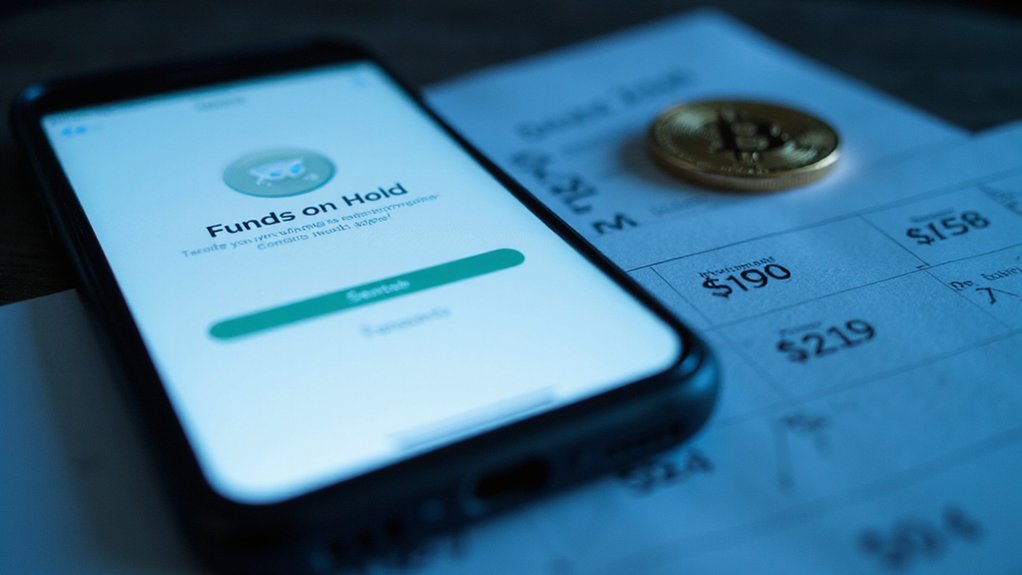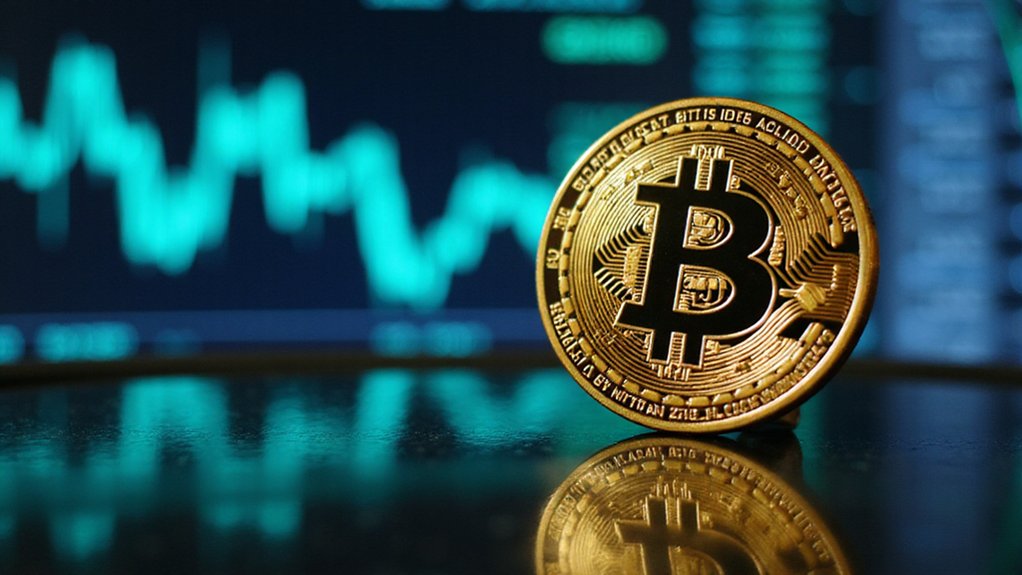Kraken is a centralized cryptocurrency exchange founded in 2011, now ranking seventh globally by trading volume with approximately $500 million daily across spot and derivatives markets. The platform offers extensive services including spot trading, margin, futures, and supports 268 tokens alongside seven fiat currencies. Despite its robust security measures—keeping 95% of funds in cold storage—Kraken faces significant regulatory challenges, accumulating over $30 million in fines and an ongoing SEC lawsuit. Further exploration reveals a complex balancing act between accessibility and regulatory compliance.
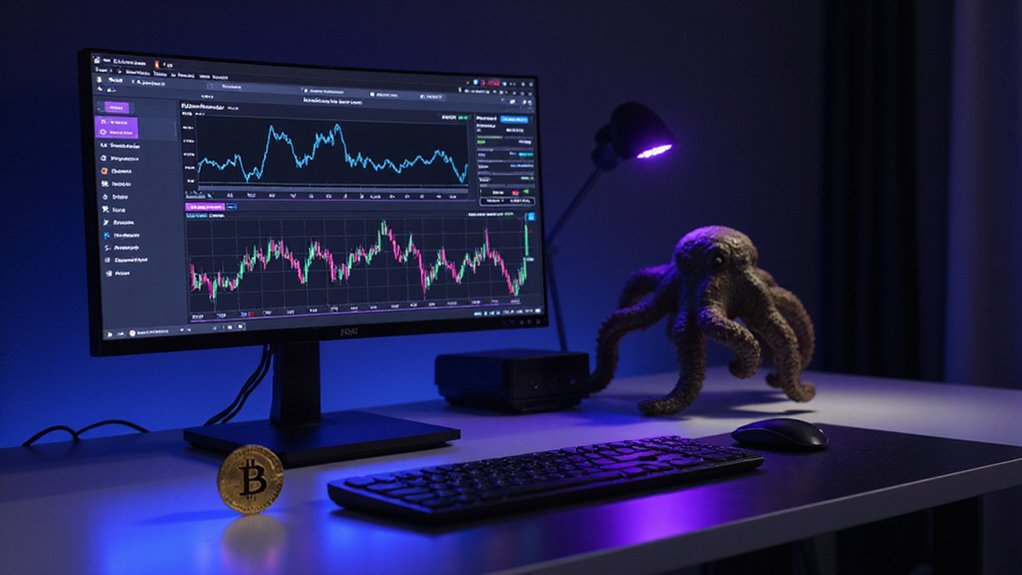
Kraken Exchange, a digital colossus in the cryptocurrency landscape, stands as one of the oldest and most established trading platforms in an industry where longevity often serves as a proxy for reliability.
Founded in 2011 under the legal entity Payward, Inc., this San Francisco-headquartered exchange distinguished itself early by securing a position on Bloomberg Terminal—no small feat in crypto’s Wild West days—while establishing a formidable presence serving both retail users and institutional investors globally.
The platform’s extensive suite of services extends well beyond basic spot trading, encompassing margin capabilities, futures contracts, and derivatives across an impressive roster of 268 tokens and seven fiat currencies.
Kraken’s expansive ecosystem transcends standard trading, offering sophisticated financial instruments across hundreds of digital assets and multiple currencies.
Professional traders gravitate toward Kraken’s subscription-based analytics packages and reduced fee structures, while newcomers appreciate its educational resources.
This versatility—allowing users to trade everything from bitcoin to solana while accessing staking rewards, perpetual contracts, and even NFT marketplaces—explains its resilient position as the seventh-ranked exchange globally by trading volume (handling approximately $500 million daily across spot and derivatives markets).
Kraken currently lists Bitcoin at an impressive $85,384.00 with a positive 24-hour change, demonstrating its commitment to providing up-to-date pricing information on leading cryptocurrencies.
Of course, maneuvering the regulatory labyrinth has proven less than straightforward for Kraken, which has accumulated over $30 million in fines through various investigations.
The SEC’s November 2023 lawsuit—alleging commingling of funds and operation of unregistered securities exchange activities—represents perhaps its most significant challenge yet, with a federal court recently advancing the case toward trial despite Kraken’s dismissal attempts.
Such regulatory entanglements have become something of an industry rite of passage, it seems.
Despite these headwinds, Kraken’s technological infrastructure and security protocols continue supporting a user experience that scales from crypto novices to seasoned traders. The exchange prioritizes user asset safety by maintaining 95% of funds in cold storage, effectively protecting them from potential online threats.
Its centralized exchange model offers a compromise between accessibility and control that many find palatable—a balance that has helped Kraken maintain its position as one of America’s cryptocurrency trading stalwarts amid an increasingly competitive landscape.
As a centralized exchange, Kraken follows standard industry practices requiring users to complete KYC verification while maintaining custody of customer funds, distinguishing it from decentralized alternatives in the cryptocurrency market.
Frequently Asked Questions
How Does Kraken’s Security Compare to Other Cryptocurrency Exchanges?
Kraken distinguishes itself in the crypto exchange arena through superior security infrastructure—maintaining a dominance of cold storage solutions that outpaces competitors’ reliance on vulnerable hot wallets.
Its military-grade physical security, regular external audits (a transparency feature particularly absent at many exchanges), and unblemished track record stand in stark contrast to platforms with notorious breach histories.
While user-friendly security features balance protection with accessibility, Kraken’s adherence to regulatory compliance further solidifies its position as a security leader.
What Fees Does Kraken Charge for Trading and Withdrawals?
Kraken employs a tiered fee structure that rewards volume traders with progressively lower rates.
Maker fees range from 0.25% to 0% while taker fees span 0.40% to 0.10%, both calculated on 30-day trading volume.
Cryptocurrency withdrawals incur asset-specific fees based on network costs, while fiat withdrawals vary from free to $35 depending on method and currency.
Importantly, Kraken’s fees compare favorably to competitors like Coinbase, offering up to 60% savings for regular traders.
Is Kraken Available in My Country?
Kraken’s availability hinges entirely on your undisclosed location.
The exchange operates in over 190 countries—including major markets like the US (with state-specific limitations), UK, Canada, and much of Europe—while being significantly absent from sanctioned territories like Russia, Iran, and North Korea.
China presents a curious regulatory contradiction, with access possible despite official bans.
Without knowing your country, definitive availability remains elusive; checking Kraken’s website with your specific jurisdiction would yield the authoritative answer you seek.
How Long Do Deposits and Withdrawals Typically Take?
Deposit and withdrawal processing times on Kraken vary greatly by method.
ACH deposits carry a 7-day withdrawal hold, while bank transfers typically process without extended delays beyond standard security measures.
Cryptocurrency deposit times are network-dependent—Solana transfers nearly instantaneous, for instance.
Withdrawals range from same-day processing (ACH before 2 PM EST) to 1-5 business days (SWIFT).
Various restrictions apply: verification requirements, matching account names, and universal security holds following certain deposit types are non-negotiable components of Kraken’s transfer ecosystem.
Does Kraken Offer Staking Rewards for Cryptocurrencies?
Kraken indeed offers staking rewards across various cryptocurrencies, with potential annual yields reaching up to an impressive 17% depending on the asset.
Stakeholders can select between flexible terms (allowing immediate withdrawals) or bonded arrangements (locked for higher returns), with payouts distributed approximately twice weekly.
The platform auto-compounds rewards and charges no transaction fees for staking operations, though a 20% commission applies to earned rewards.
Geographic restrictions may limit availability in certain jurisdictions.
